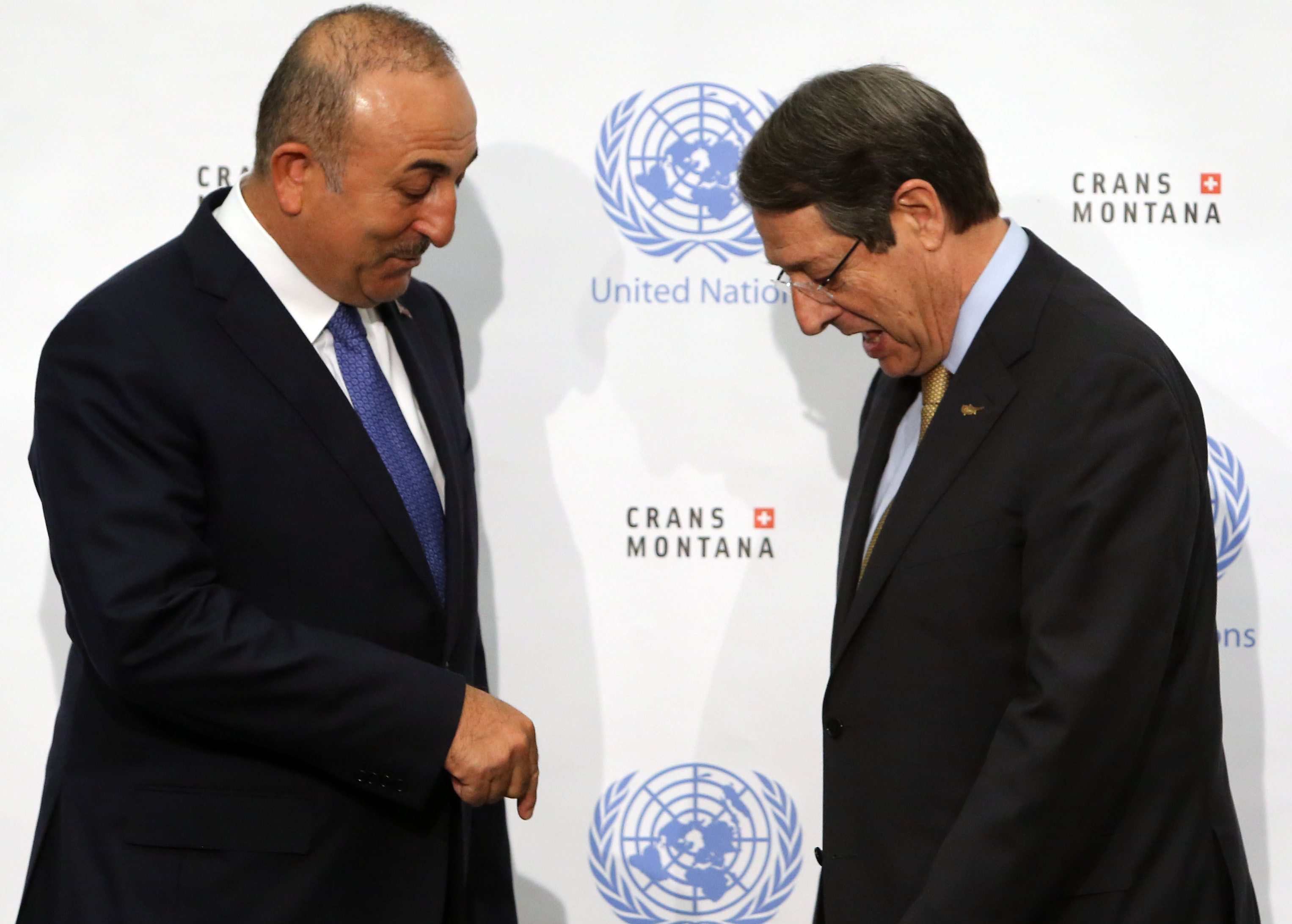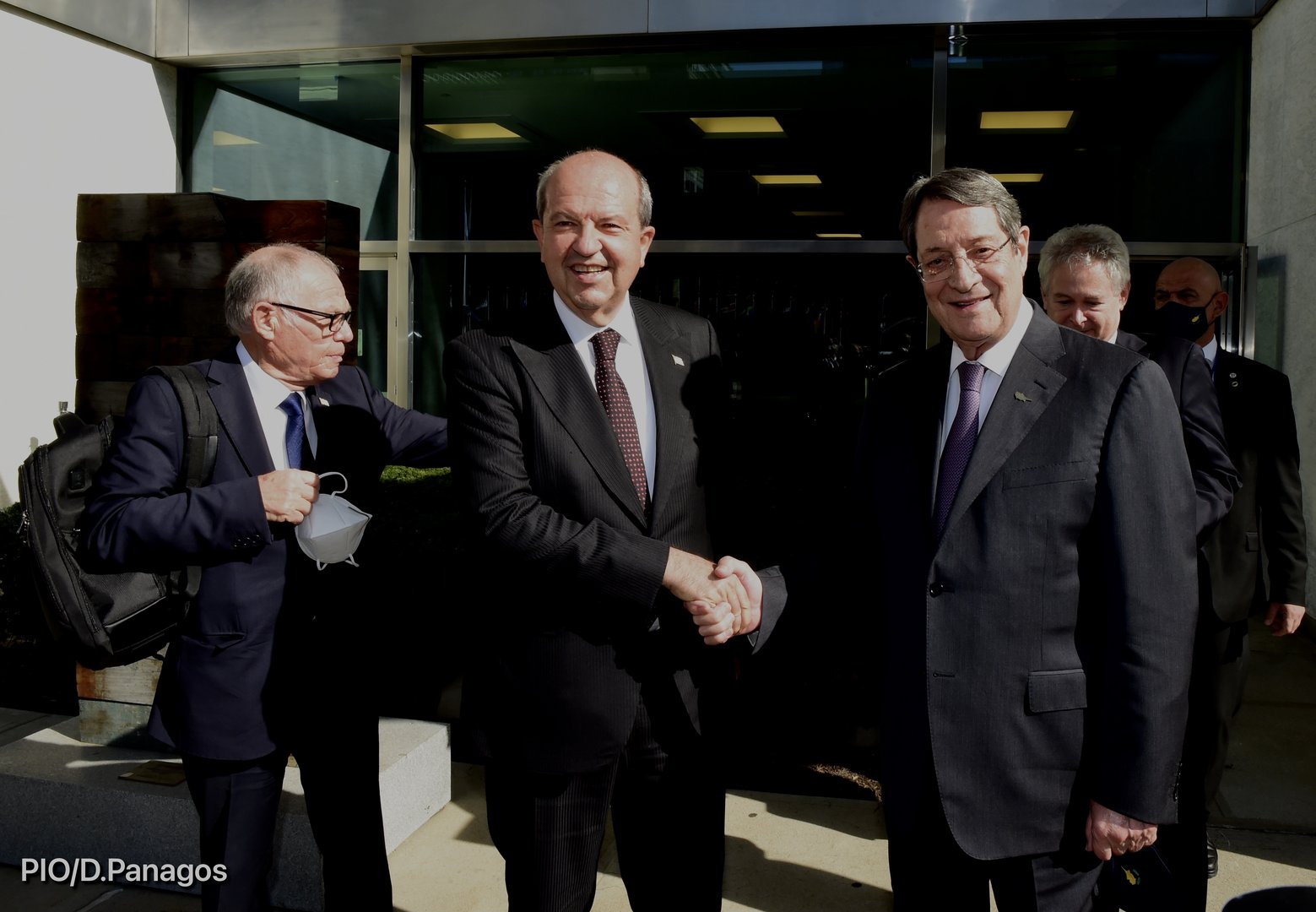Former president Nicos Anastasiades has been “politically lynched” by the Greek Cypriot political establishment over reports that he had offered Turkey a two-state solution to the Cyprus problem, former Turkish Cypriot chief negotiator Ergun Olgun said on Tuesday.
“If forced to choose, the Greek Cypriot side would prefer a solution model based on two-separate states in exchange for a small amount of territory, rather than engaging in equal power sharing within a common state with the Turkish Cypriot side, which it despises. Anastasiades has already said this, but the broader circle which still believes it can control the entire island has politically lynched him,” he told Kibris TV.
He added that the Greek Cypriot side “neither embraces a bizonal federal power sharing model based on political equality, nor a compromise based on two sovereign states”.
“Their unconcealed, obsessive goal is to transform the whole of Cyprus into a Hellenic republic under their own sovereignty over time, but granting some privileged minority rights to the Turkish Cypriots on the basis of the so-called Republic of Cyprus,” he said.
As such, he then accused the Greek Cypriot side of “weaponising the federal model for its own interest”, and thus warned that candidates running in this October’s Turkish Cypriot leadership election supporting a federal solution “may unknowingly be used as tools in the Greek Cypriot side’s schemes”.
“The fact that an influential political party in our country continues to support a federal solution for political and populist reasons whets the appetite of the Greek Cypriot side, buys them time, reduces the pressure on them, and serves to maintain the status quo, which is against us,” he said.
He then added that should the Turkish Cypriot side return to negotiations based on a federal solution, “the Greek Cypriot side will exploit the process to achieve its own irredentist goals, as it did in the past”.
There is, at present, one candidate running in October’s election supporting a federal solution to the Cyprus problem – Tufan Erhurman – who has won the support of his own political party, the CTP, and that of fellow opposition party the TDP.
He will challenge incumbent Ersin Tatar, under whom Olgun served, and who has won the endorsement of all three ruling coalition parties, the UBP, the YDP, and the DP.

Accusations that Anastasiades offered Turkey a two-state solution to the Cyprus problem most recently came from Costas Themistocleous, who served as agriculture minister between 1998 and 2003 under former president Glafcos Clerides.
He said earlier this month that Anastasiades “continues to be under the illusion that by constantly accusing people of adopting Turkish narratives on the Cyprus problem, he will be relieved of the enormous responsibilities he personally bears” for the current lack of negotiations towards a solution.
“Anastasiades, behind the backs of the United Nations, behind the back of Secretary-General Antonio Guterres, in a secret meeting with [then Turkish foreign minister Mevlut] Cavusoglu, said roughly the following: a federal solution is not feasible. I am going back to Cyprus, I believe that I will be re-elected, and we will meet again to discuss on another basis,” he said.
That basis, he added, “was division, in line with [former Turkish Cypriot leader] Rauf Denktash’s old demand for two states”.
“This is how the talks ended in 2017, which is why the other side still invokes it today and considers Anastasiades to be the godfather of the two-state solution,” he said, referring to the collapse of negotiations in Crans Montana that year.
The talks at Crans Montana were the most recent formal negotiations to be held with the aim of solving the Cyprus problem and were abruptly halted in July 2017 and never resumed.
News agency Reuters at the time cited a source which said that Guterres had “finally called a halt at 2am after a session marred by yelling and drama”.
Since then, many who were party to the talks have said it was Anastasiades who left the negotiation table, with some reports in the intervening years suggesting that Russian Foreign Minister Sergei Lavrov was involved in “sabotaging” the talks.
Anastasiades has denied that he is to blame for the collapse of talks at Crans Montana, instead saying earlier this year that Turkey’s refusal to accept an abandonment of the Treaty of Guarantee, which allows Cyprus’ three guarantor powers to use force to intervene on the island should its legal order be disrupted.
“I will not comment at this stage on the unsubstantiated allegations that the conference was interrupted because the former president allegedly abandoned the negotiations, which is why the talks collapsed,” he said, adding that he would “address this matter later”.






Click here to change your cookie preferences